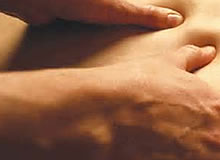|
BOOK NOW |
ASK ABOUT YOUR PAIN |
Home > Blog > Physiotherapy > Conditions > Chronic Fatigue Syndrome Physiotherapy
Chronic Fatigue Syndrome Physiotherapy

Chronic fatigue syndrome (CFS) is a condition that affects approximately
1% of the population in the United States (2-5% rate in Singapore). Worst still is that without treatment and prolonged, chronic fatigue syndrome often
leads to disability and even to accidents or death.
What is Chronic Fatigue Syndrome?
Chronic fatigue syndrome is a condition categorized by generalized fatigue and tiredness that persists for 6 months or longer, and is more intense than would be expected based on the effort a person regularly exerts.
Although research has yet to confirm or show a full understanding of the underlying cause(s) of CFS, scientists and researchers suspect
- impairments of/related to aerobic energy
- impairments of/related to immune system
- impairments of/related to gastrointestinal systems
may be responsible for the functional impairment experienced in individuals with this condition.
How Does chronic fatigue syndrome Feels like?
The best known symptom of CFS is “postexertional malaise,” which causes patients to feel profoundly, deeply tired even with usual daily activities or minor overexertions.
To add to that, patients who suffer from chronic fatigue syndrome may feel
- generalized body pains
- headaches
- difficulty thinking (ie, "brain
fog") and
- sleep disturbances
CFS has been described by some patients as feeling
like a flu that has persisted for a very long period of time. These
symptoms may fluctuate and come and go over time. Unfortunately, there is no full recovery in adults with CFS, although it may be more
common in children with CFS.
Signs and Symptoms of chronic fatigue syndrome

Research has identified several symptoms of CFS, including:
- Fatigue. One of the primary symptoms of CFS is fatigue that lasts 6 months or more.
- Generalized pain.There is a significant amount of
overlap between diagnoses of CFS and fibromyalgia, and some studies have
suggested that 50% to 80% of people diagnosed with CFS also qualify to
have a diagnosis of fibromyalgia. In both conditions, widespread
distributions of pain are often present.
- Frequent headaches. Many people with CFS complain about frequent or recurring headaches, which can lead to avoiding physical activity.
- Muscle weakness. Decreased physical activity can result in general muscle weakness.
- Cloudy thoughts and confusion. CFS may make it difficult to concentrate or "stay on task."
- Disturbed sleep. Despite generalized fatigue, those with CFS often have difficulty sleeping.
- Flu-like symptoms. People with CFS report flu-like symptoms, including sore throats, muscle aches, and generalized fatigue.
How Is It Diagnosed?

CFS is a diagnosis of exclusion, meaning that no other health problem may be responsible for the fatigue.
Diagnosis of CFS is symptom-based; your physician or our senior physiotherapist will base the diagnosis on the symptoms you report. They may also conduct medical tests to rule out other medical conditions.
Even then, unfortunately, there are no diagnostic tests to confirm the presence of CFS.
In fact our senior physiotherapist may be the first to recognize an onset of CFS because of its effects on your physical function. We may ask you:
- When do you feel fatigued and how long have you been feeling fatigued?
- Do you experience any widespread pain or discomfort?
- Have you noticed any significant changes in your ability to perform physical tasks?
- Have you noticed any sleep disturbances?
- Have you noticed any recent changes in your ability to think clearly?
Cardiopulmonary exercise testing, including 2 tests arranged 24 hours apart, may be used to characterize the severity of your functional impairment.
In addition, we may ask you to fill out a questionnaire in order to better understand your physical state, and to screen for the presence of other conditions.
How Can our senior PhysioTherapist Help?
We will work with you to develop a treatment plan to help ease your discomfort and improve your ability to perform daily activities.
Because fatigue, pain, and weakness are all associated with CFS, treatment will likely focus on improving short-term endurance and strength. We may also check for other conditions, such as depression and may refer you to other specialists for comanagement of your symptoms.
Physical therapy treatments may include:
Education. We will teach you strategies to help conserve energy while performing your daily activities.

Movement and Strengthening Exercises. Moving and exercising can improve your short-term endurance and strength and reduce your pain. We will help you identify specific movements that will help reduce your specific symptoms.
Manual Therapy. Manual (hands-on) therapy may be applied to manipulate or mobilize the skin, bones, and soft tissues to help reduce pain and improve movement.
We may also recommend:
- regular deep tissue release therapy to ensure your muscles are health and optimal as well as improve circulation and recovery
- acupuncture
- clinical pilates for core strength will help help you move better and use energy better